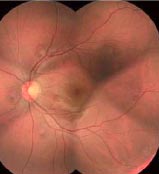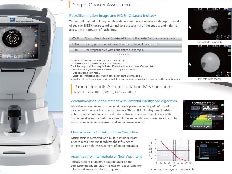Comprehensive Vision Assessment
| Assessment included: |
> |
History taking |
|
> |
Visual acuities |
|
> |
Refractive errors (short-sightedness, far-sightedness, astigmatism, presbyopia, etc) |
|
> |
Pupil reflex |
|
> |
Oculomotor ability |
|
> |
Binocular vision |
|
> |
Accommodation function |
|
> |
Intra-ocular pressures |
|
> |
Stereopsis |
|
> |
Colour Vision |
|
> |
External eye and tear film assessment |
|
> |
Internal ocular health (including assessment of the intra-ocular lens, vitreous body, retina, macula, optic nerve head) |
|
|
* |
Whether dilated fundus examination is suitable for the individual is depended on the Optometrist’s decision |
‘Vision’ is much more than just being able to see clearly. Having good ‘clarity’ does not mean you have good ‘vision’. Being able to see clearly is very basic, having an efficient visual system requires good visual functions and ocular health. Comprehensive Optometric assessment not only can accurately determine the prescription and assess on other visual functions (e.g. squint or lazy eye), it can also reveal many other ocular conditions including: Cataract, Corneal problem, Macular degeneration, Retinal changes, Diabetic Retinopathy, Vitreous degeneration (floaters), etc.


